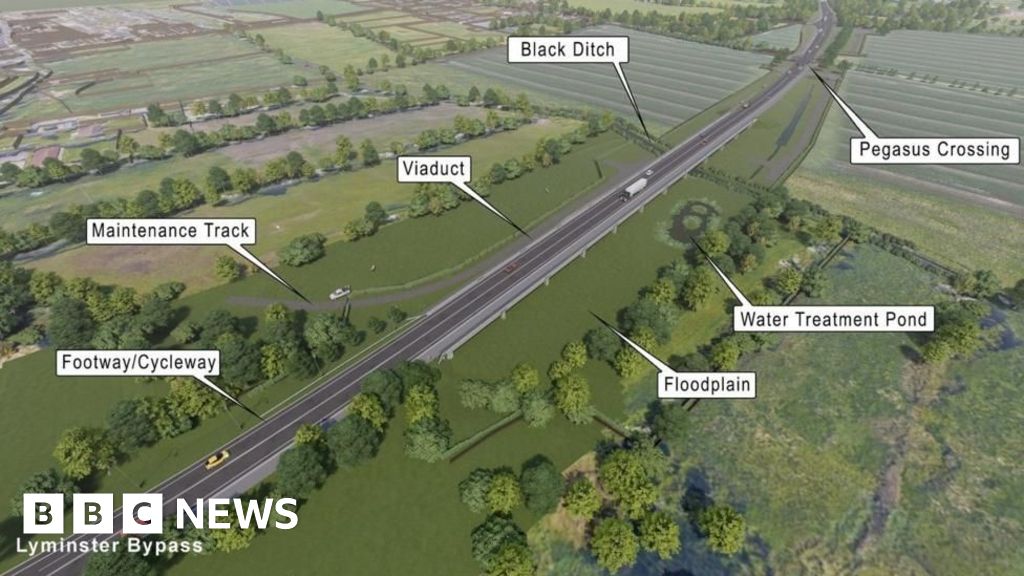- Soccer
Which US cities have the LA immigration protests spread to?
时间:2010-12-5 17:23:32 作者:Golf 来源:Weather 查看: 评论:0内容摘要:"As you can hear, there is a wave of assaults from the enemy and we need a lot of ammunition to suppress that. We hope our international partners can give us as much ammunition as possible, because if we have to start choosing priority and non-priority targets then the enemy will be successful," says Kozak."As you can hear, there is a wave of assaults from the enemy and we need a lot of ammunition to suppress that. We hope our international partners can give us as much ammunition as possible, because if we have to start choosing priority and non-priority targets then the enemy will be successful," says Kozak.
"There's a whole world waiting to be tapped."The UK's saltmarshes are vital "sinks" that lock away climate-warming greenhouse gases in layers of mud, according to a new report from WWF.
Much of the UK's saltmarshes have been lost to agriculture but the charity says they are unsung heroes in nature's fight against climate change.It is now calling for these muddy, tidal habitats to be added toof how much carbon is emitted and how much is removed from our atmosphere every year.

This formal recognition could, it hopes, provide more of an incentive to restore and protect more of these sites.Working with researchers from the UK's Centre for Ecology and Hydrology, a WWF team installed solar-powered greenhouse gas monitoring stations on Hesketh Out Marsh, a saltmarsh in North-West England that has been restored and is managed by the RSPB.

Analysing gases in the air flowing around the marsh - over the course of a year - revealed how plants there "breathe in" more carbon dioxide in the summer than they release in winter.
These new findings build on previous studies that have measured the amount of carbon in the marshland's mud.US Secretary of Defense Pete Hegseth has warned of China posing an "imminent" threat to Taiwan, while urging Asian countries to boost defence spending and work with the US to deter war.
While the US does not "seek to dominate or strangle China", it would not be pushed out of Asia nor allow its allies to be intimidated, Hegseth said while addressing a high-level Asian defence summit on SaturdayIn response, China has accused the US of being the "biggest troublemaker" for regional peace.
Many in Asia fear potential instability if China invades Taiwan, a self-governing island claimed by Beijing. China has not ruled out the use of force.Speaking at the Shangri-la Dialogue in Singapore, Hegseth characterised China as seeking to become a "hegemonic power" that "hopes to dominate and control too many parts" of Asia. China has clashed with several neighbours over competing territorial claims in the South China Sea.
- 最近更新
- 2025-07-07 06:11:28Thai government in crisis amid fallout from PM’s leaked phone call
- 2025-07-07 06:11:28TikTok Shop food listings 'putting people at risk'
- 2025-07-07 06:11:28Indonesia’s Mount Lewotobi Laki-laki volcano erupts, alert at highest level
- 2025-07-07 06:11:28Shooting victim Colombia Senator Uribe Turbay critical after brain surgery
- 2025-07-07 06:11:28North Face and Cartier customer data stolen in cyber attacks
- 2025-07-07 06:11:28Photos: Search for survivors after Russian drones and missiles hit Kyiv
- 2025-07-07 06:11:28Gallery raising £3.8m for Hepworth 'masterpiece'
- 2025-07-07 06:11:28Putin will seek revenge for Ukraine drone attack, warns Trump
- 热门排行
- 2025-07-07 06:11:28Candace Cameron Bure's Daughter Natasha Sizzles in Itty-Bitty Bikini Photos
- 2025-07-07 06:11:28Israel strikes Iran’s Isfahan nuclear site, buildings on fire in Tel Aviv
- 2025-07-07 06:11:287 best investment platforms: Low-cost options to put your money to work
- 2025-07-07 06:11:28Winemakers finding Trump's tariffs hard to swallow
- 2025-07-07 06:11:28The 5-Minute Tomato Salad I Can't Stop Making
- 2025-07-07 06:11:28Fruit and veg threat extends Thailand-Cambodia border row
- 2025-07-07 06:11:28The 17 Best Retinol Creams Worth Adding to Your Skin Care Routine
- 2025-07-07 06:11:28National Trust covers artwork referencing JK Rowling after tampering
- 友情链接
- US Senate passes stablecoin bill in milestone victory for crypto sector Most Americans now get their news from social media, report finds ‘The shelter was full’: Israelis confront unprecedented missile barrages ‘Not for you’: Israeli shelters exclude Palestinians as bombs rain down How do ballistic missiles work and what’s their range? Photos: The deadliest day at Gaza’s food distribution centres Photos: The deadliest day at Gaza’s food distribution centres German court convicts Syrian doctor of crimes against humanity G7 leaders push Trump on trade as talks continue Hezbollah watches on as Iran and Israel battle, for now United Nations slams US- and Israel-backed Gaza aid group as a ‘failure’ Mapping Iran’s oil and gas sites and those attacked by Israel Israel massacres in Gaza, locks down West Bank as attention shifts to Iran US Supreme Court lets fuel producers challenge California emissions rules US Supreme Court declines to speed up decision to take up fight over tariff The US sponsored Iran’s 1953 regime change: Is Trump planning a repeat? Meta ‘concerned’ Iran could ban WhatsApp after snooping claims EU squeezes Russia financially to reach ‘peace through strength’ in Ukraine US Senate passes stablecoin bill in milestone victory for crypto sector Elon Musk’s X sues New York to block social media hate speech law Which US cities have the LA immigration protests spread to? The US sponsored Iran’s 1953 regime change: Is Trump planning a repeat? Putin says Russian recession must not happen ‘under any circumstances’ US Fed leaves interest rates unchanged amid economic uncertainty Hezbollah watches on as Iran and Israel battle, for now EU squeezes Russia financially to reach ‘peace through strength’ in Ukraine Palestinians in Gaza condemn aid handout killings Mapping Iran’s oil and gas sites and those attacked by Israel Photos: The deadliest day at Gaza’s food distribution centres The water of Hajj: A simple illustrated guide to Zamzam
